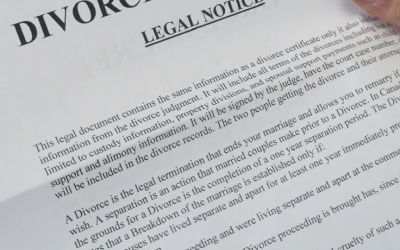
Guide to Interfaith Marriage in Dubai: Laws & Recognition 2025
Table of Contents ▼
Dubai, a city home to over 200 nationalities, has continuously adapted its legal framework to accommodate its multicultural population.
One of the most significant changes came in 2022 with the introduction of civil marriage for non-Muslims under Federal Decree Law No. 41.
This guide provides an overview of civil and interfaith marriage in Dubai, covering the legal aspects.
Civil Marriage Laws in Dubai

Federal Decree Law No. 41 of 2022
Federal Decree Law No. 41, introduced in 2022, brought a significant change to Dubai’s marriage laws, allowing non-Muslim expatriates and tourists to enter into civil marriages. Governed by civil law, this law offers an alternative to Sharia law, and the marriage process is conducted by Dubai Courts. Both residents and tourists can take advantage of this simplified legal procedure for marriage.
Sharia Law vs. Civil Marriage
Sharia law and civil marriage in Dubai are distinct in their approach. Sharia law permits Muslim men to marry Christian or Jewish women but restricts them from marrying atheists or polytheists unless those individuals convert to Islam.
Muslim women, however, can only marry Muslim men. On the other hand, civil marriage offers a more inclusive option, enabling non-Muslim couples to marry without religious interference.
Civil Interfaith Marriage Eligibility in Dubai

To qualify for a civil interfaith marriage in Dubai, both partners must meet certain conditions. Both individuals must be non-Muslim, as Muslims must follow Sharia law for marriage.
At least one partner should be a resident of the UAE, and both must be at least 21 years of age. Additionally, the couple must not be closely related or already married.
For residents, the required documents include valid passports, Emirates IDs, proof of marital status (single, divorced, or widowed), and a residential visa copy. Tourists will need passport copies, an entry visa (if applicable), and a certificate of no impediment from their home country.
Step-by-Step Civil Marriage Process
- Submit Application: Couples can apply online, with a standard application fee of around AED 2,500, although it may vary based on services requested.
- Attend Marriage Ceremony: The ceremony is performed by a notary public, meaning no religious officiant is required. Witnesses are optional, with the notary public serving as the legal witness. The ceremony is available in English and Arabic.
- Receive Marriage Certificate: After the ceremony, the marriage certificate is issued immediately. If necessary, it can be attested for use internationally.
Couples may opt for a hybrid ceremony, where they complete the legal procedure and then follow it with a cultural or religious celebration.
Interfaith Marriage: Understanding the Legal Framework

Dubai’s new civil marriage law has opened doors for non-Muslim couples but presents some restrictions for Muslim residents. Muslim men can marry Christian or Jewish women under Sharia law but are not allowed to marry atheists or polytheists unless the women convert to Islam. Similarly, Muslim women cannot marry non-Muslim men unless the man converts to Islam.
In some cases, couples marry abroad and later try to register their interfaith marriage in the UAE, although this process may present legal challenges.
Recognition of Foreign Marriages
When couples marry abroad, their marriage can be recognized in Dubai if it was legally performed in the country where it took place. However, it may require attestation from the UAE Embassy and the Ministry of Foreign Affairs (MOFA). Marriages that violate UAE laws, such as same-sex marriages, will not be acknowledged. All documents must be fully attested for recognition.
Cultural and Legal Challenges
Interfaith couples often face challenges, particularly in terms of family and social pressure, especially in more conservative areas. Legal complications may also arise when one partner is Muslim, especially concerning issues like child custody and inheritance, which are dictated by Sharia law.
Dubai’s legal system supports interfaith marriage by offering neutral avenues for dispute resolution within these unions.
Conclusion
While the system has become more accommodating, navigating the process requires careful attention to legal requirements. Ensuring that all documentation is in order and allowing enough time for processing are essential steps for success.
Legal professionals specializing in UAE family law, such as Easy Wedding, can offer the support needed to navigate the complexities of interfaith marriage.


